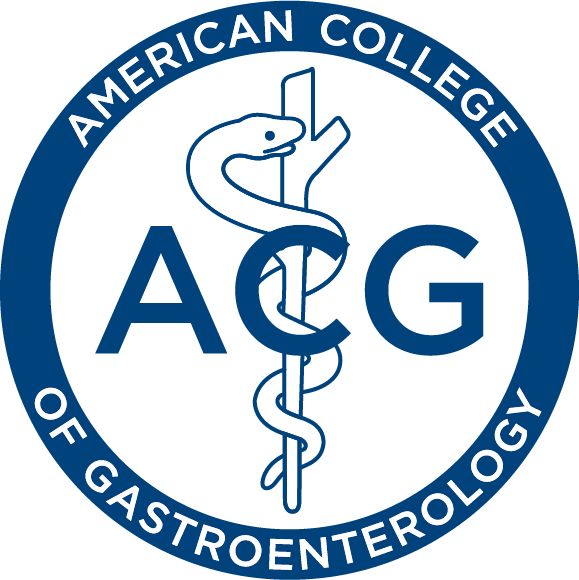For Immediate Release:Monday, October 15, 2001
Contact: Malaika Hilliard 202/973-5896 [email protected]
Sharon Burns-Pavlovsky 202/973-2934[email protected]
New Scientific Advances in Gastroenterology Presented at the American College of Gastroenterology's 66th Annual Meeting
WASHINGTON (October 15, 2001) -- Many of the world's preeminent gastroenterologists will gather from October 22 -- October 24 for the American College of Gastroenterology's (ACG) 66th Annual Scientific Meeting at the Venetian Resort and Hotel in Las Vegas, Nev. The agenda includes the latest advances in gastrointestinal research, treatment of digestive diseases and clinical practice management.
Two keynote addresses will highlight the program. The J. Edward Berk Distinguished Lecture "Immunology and Therapy on IBD" will be delivered by Richard P. MacDermott, M.D., FACG on Tuesday, October 23, 2001, at 10 a.m. (PDT). The Baker Presidential Lecture, "Hereditary Hemocromatosis: Implication of Gene Discovery on Pathophysiology and Clinical Practice" will be presented by Bruce R. Bacon, M.D., FACG at 10:15 a.m. (PDT) on Wednesday, October 24, 2001.
Daily lunchtime media briefings are planned on the following topics:
Monday, October 22, 2001, 12:30 PM (PDT) Room 901 -- "What's New in GI Pharmacology"* Sunanda Kane, M.D., University of Chicago * Stephen B. Hanauer, M.D., FACG, University of Chicago* Luis A. Balart, M.D., FACG, Louisiana State University* Moderator: Philip O. Katz, M.D., FACG, Graduate Hospital
Tuesday, October 23, 2001, 12:30 PM (PDT) Room 901 -- "GI Disorders of Function"* Nicholas J. Talley, M.D., FACG, University of Sydney, Australia* Kevin W. Olden, M.D., FACG, Mayo Clinic, Scottsdale
American College of Gastroenterology 2001 Annual Scientific Meeting
* Marvin M. Schuster, M.D., MACG, Hopkins-Bayview Medical Center* Moderator: Philip S. Schoenfeld, M.D., University of Michigan
Wednesday, October 24, 2001, 12:30 PM Room 901 (PDT) -- "Overcoming Obesity"* Barry Fisher, M.D., University of Nevada* Moderator: Luis A. Balart, M.D., FACG, Louisiana State University
Media briefings for the above are available via telephone by calling toll-free 800-228-2554.
Physicians will also be available for interviews on:
Monday, October 22, 2001, 10:30 AM and 11:00 AM (PDT) Room 901 -- "Colorectal Cancer: Trends in Screening"* Douglas K. Rex, M.D., FACG, Indiana University School of Medicine* David A. Johnson, M.D., FACG, Eastern Virginia Medical School
Tuesday, October 23, 2001, 10:30 AM and 11:00 AM (PDT) Room 901 -- "GI Disorders in Pregnancy"* Karen L. Woods, M.D., FACG, Baylor College of Medicine* Norman Gitlin, M.D., FACG, Emory University School of Medicine
Scientific presentations at the meeting will focus on new challenges in patient care faced by gastroenterologists and advances in the prevention and treatment of digestive diseases. Highlights of topics to be addressed include:
* Ecstasy, Liver Failure, and Death in a Young Adult. An examination of a case of liver failure, resulting from the recreational use of the drug Ecstasy, that lead to death in a young adult.
American College of Gastroenterology 2001 Annual Scientific Meeting
* Herbal Remedies Are Not Necessarily Safe. Three new reports underscore the need for physicians to educate patients about herbal remedies and their potential harm to the liver.
* Elderly Adults Benefit from Screening Colonoscopy, but Millions of Medicare Recipients are Unaware of Coverage. Researchers have found that although the prevalence of neoplasia among elderly patients underscores their need for colonoscopy, many are not aware of the benefit of it, or that they are eligible for the test.
* Fructose Intolerance a Frequent Cause of Unexplained GI Disorder Symptoms. A recent study indicates that the simple sugar found in honey and many fruits may play an important role in the onset of common, and often unexplained gastrointestinal symptoms.
* Map of Human Genome to Help Scientists Locate and Clone Pediatric GERD Gene. Thanks to the availability of the complete map of the human genome, researchers are close to cloning the gene for pediatric GERD. The new strategy could ultimately yield new gene-based therapies for this severe illness.
* Reassurance from Negative Endoscopy Lowers Health Anxiety. New research shows that anxious gastroenterology patients who receive the reassurance of a negative endoscopic exam show an immediate improvement in their health behavior, and these gains in well being are maintained over time.
* Maintenance Doses of Infliximab Help Control Crohn's Disease. According to results from a multi-center, international study, maintenance doses of infliximab monoclonal antibody reduce the signs and symptoms of Crohn's disease.
* Symptoms of GERD Impair Sleep and Lower Worker Productivity. Two studies highlight the importance of treating the symptoms of GERD that increase sleep fragmentation and absenteeism from work and decrease sufferers' quality of life.
American College of Gastroenterology 2001 Annual Scientific Meeting
* Irritable Bowel Syndrome Exacts Significant Toll on Society. Two new studies on irritable bowel syndrome detail the high economic and social costs of the condition in the United States.
The ACG was formed in 1932 to advance the scientific study and medical treatment of disorders of the gastrointestinal tract. The College promotes the highest standards in medical education and is guided by its commitment to meeting the needs of clinical gastroenterology practitioners. Consumers can get more information on GI diseases through the following ACG-sponsored programs:
* 1-800-978-7666 (free brochures on common GI disorders, including ulcer, colon cancer, gallstones and liver disease)* 1-800-HRT-BURN (free brochure and video on heartburn and GERD)* www.acg.gi.org (ACG's Web site)
# # #
For media registration, or to participate in the press briefings via teleconference, please contact Malaika Hilliard at 202-973-5896 or [email protected], or Jennifer Armstrong at 202-973-2930 or [email protected].
